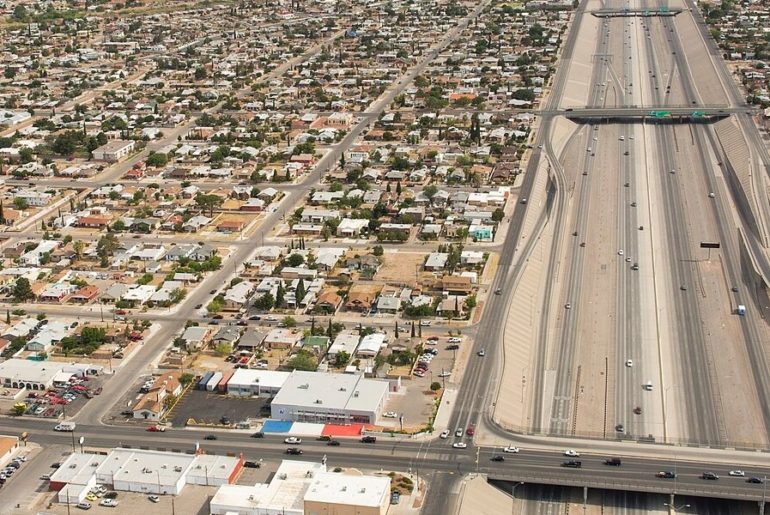Since last week, in the cities of Laredo and Brownsville, the asylum hearings of immigrants are being held in tents used as courthouses.
These courts are part of a policy implemented by the Trump administration called Migrant Protection Protocols (MPP), but better known as the “Remain in Mexico” Program. Asylum seekers are forced by the federal government to wait in Mexico while their asylum applications move through the congested immigration courts.
Immigrants chatted on video with a judge in San Antonio, where the observers who monitored the hearings had to move. El Nuevo Herald says at least 42,000 migrants have been forced to return to Mexico this year after crossing the border. Many of them say they fled violence or threats in their home countries in hopes of obtaining asylum.
Detractors of the system have criticized this procedure because it is closed to the public and makes it difficult for lawyers to provide legal representation. On a telephonic briefing for press, immigration law experts shared concerns about due process at these courts.
Jodi Goodwin, an Immigration Attorney in Harlingen, Texas described the process as, “Running rough-shod over due process is the name of the game for the Port Courts and MPP. Despite repeated attempts to garner information about how cases will work and even where they will be allowed to go, attorneys are left out of the process, and access to counsel for those in MPP is abysmal. I cannot overstate the difficulties of providing counsel to people located in a Level 4 Security Threat Assessment zone, as per the Department of State, similar to Aleppo, Syria, and Kabul, Afghanistan. Asylum seekers represented by attorneys are much more likely to be successful but the government is throwing up every possible obstacle to counsel, and thus to justice.”
Denise Gilman, Director, Immigration Clinic, University of Texas, Austin shared, “The Remain in Mexico program places asylum seekers in incredible danger in northern Mexico only to call them back for asylum hearings that are a sham. Video hearings within tents carried out without access to counsel do not respect minimal due process norms. The entire program is set up to turn away asylum seekers seeking desperately-needed protection in this country under U.S. and international law. There is no way to fix this shameful program; it must be ended.”
Others have raised the concern that migrants are put in additional harm due to this program. Charanya Krishnaswami, Amnesty International director of advocacy, said in a statement, ““Every person has the right to seek safety: this is a moment that will prove itself infamous, when the country turned its back on those it used to welcome and chose to ignore people’s humanity.”
Amnesty International has documented the dangers of asylum seekers’ journeys to safety. In its investigation of Mexico’s asylum system, Amnesty International found that Mexico routinely detains people seeking asylum and deports them into harm’s way.
The collapse of immigration courts
La Vanguardia points out that the government sees these courthouses made with white tents and installed next to the border bridges as a tool to expedite the According to the independent registry kept by Syracuse University, there are already a million backlog cases of asylum hearings of the country. The most recent data from the immigration courts show that, as of August 31, the number of pending cases increased to 1,007,155, in the entire U.S.
Immigrants most affected by the accumulation of cases are those living in California, where there are 175,739 foreigners awaiting the decision of a judge. Los Angeles courts have a total of 82,936 cases, while in San Francisco immigration judges must still review 68,329 applications. Texas experiences the second biggest traffic jam, with 160,759 cases, of which in the city of Houston alone there are 66,138 immigrants awaiting a decision.
The TRAC analysis does not currently record information about immigration courts in the states of Alabama, South Carolina, Arkansas, and Vermont, among others, which could further increase the number of cases, the report said.
Start of the sessions
On Monday September 9, 2019, the American Immigration Lawyers Association National (AILA) submitted questions to Executive Office for Immigration Review (EOIR), Department of Justice concerning the rollout of the new tent courts. EOIR responded that hearings at the facilities will be held by VTC (videoteleconferencing). EOIR deferred many questions regarding how long the program will last and the number of facilities were deferred to the Department of Homeland Security.
This situation is worrying especially for families who fled violence and lack of opportunities in their countries, hopefully, more humane and fair actions for this population.

